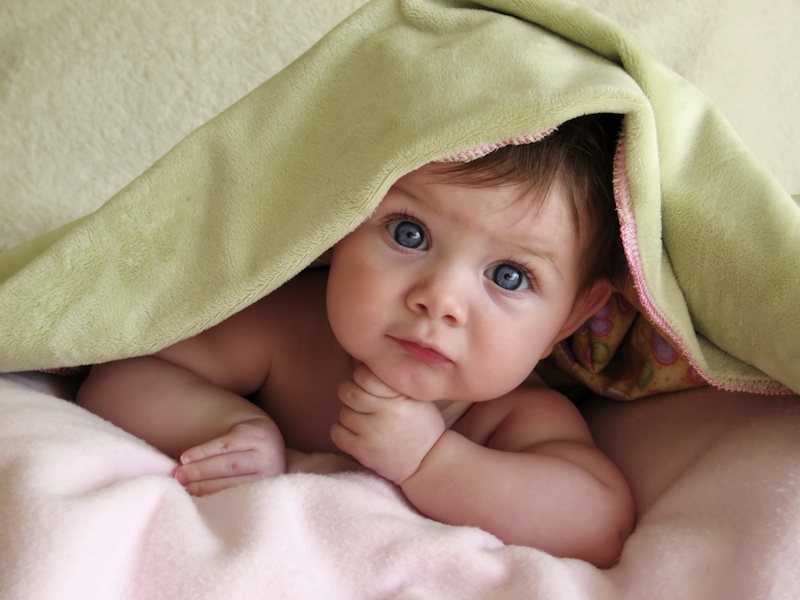Baby-Name Regret Is on the Rise, Expert Says

Get the world’s most fascinating discoveries delivered straight to your inbox.
You are now subscribed
Your newsletter sign-up was successful
Want to add more newsletters?

Delivered Daily
Daily Newsletter
Sign up for the latest discoveries, groundbreaking research and fascinating breakthroughs that impact you and the wider world direct to your inbox.

Once a week
Life's Little Mysteries
Feed your curiosity with an exclusive mystery every week, solved with science and delivered direct to your inbox before it's seen anywhere else.

Once a week
How It Works
Sign up to our free science & technology newsletter for your weekly fix of fascinating articles, quick quizzes, amazing images, and more

Delivered daily
Space.com Newsletter
Breaking space news, the latest updates on rocket launches, skywatching events and more!

Once a month
Watch This Space
Sign up to our monthly entertainment newsletter to keep up with all our coverage of the latest sci-fi and space movies, tv shows, games and books.

Once a week
Night Sky This Week
Discover this week's must-see night sky events, moon phases, and stunning astrophotos. Sign up for our skywatching newsletter and explore the universe with us!
Join the club
Get full access to premium articles, exclusive features and a growing list of member rewards.
Expectant parents, back away from the baby-name books.
Okay, a peek or two probably won't hurt you. But if you're planning on trashing "15,000 Baby Names" (Meadowbrook Press, 1997) for the even-lengthier "The Baby Name Countdown: 140,000 Popular and Unusual Baby Names," (Da Capo Press, 2008), you may be setting yourself up for a fall.
Psychologists are finding that more choices often lead to more paralysis and regret, and baby names seem to be no exception.
"There isn't hard data, partially because I don't know of any accessible data on name changes," said baby-name expert Laura Wattenberg. "But as a percentage of my mail … remorse from parents who have already chosen names is rising." [Most Hated & Most Popular Baby Names]
What's in a name?
In a two-part post on her blog, The Baby Name Wizard, Wattenberg explores this name-remorse phenomenon. Parents want the perfect name for the baby, she told LiveScience, and for good reason — evidence suggests names can influence a child later in life. For example, boys given feminine names experience more disciplinary problems in school, probably related to teasing and insecurity. Studies have also shown that a name's racial background can send signals to hiring managers, with one well-known 2003 study from the National Bureau of Economic Research finding that resumes with "white" names were more likely to receive callbacks than identical resumes with "black" names.
At the same time, names reveal more about a child and a child's parents than ever before. According to Wattenberg, it took a list of six names to cover half of the population of children born in England in 1800 (U.S. Social Security Administration records don't begin until 1880). By 1950 in the United States, that number was up to 79. Today, it takes 546 names to cover half of the population of U.S. babies born.
Get the world’s most fascinating discoveries delivered straight to your inbox.
What that means, Wattenberg said, is that names send more tailored messages now than in the days when there were significant numbers of little Johns and Marys running around.
"Names are becoming more important as they're becoming more diverse, because every choice sends a stronger signal," said Wattenberg, author of "The Baby Name Wizard: A Magical Method for Finding the Perfect Name for Your Baby" (Three Rivers Press, 2005). "When you're choosing names from around the world or you're inventing your own name, that comes with a more powerful message."
Name remorse
Almost invariably, name-hunting parents are looking for something appealing but unique, Wattenberg said. That's a tough standard, given that appealing names are generally popular by definition. As a result, baby name books have become thicker and thicker, with the record-holder currently swollen with 140,000 names. (The catch, Wattenberg said, is that these enormous name dictionaries usually count every possible spelling of a name separately, inflating their totals.) [The Name Game: Quiz Yourself on Popular Monikers]
The problem with this name explosion is that psychologists don't necessarily find that having more choices is better. To explain this phenomenon, Swarthmore College researcher Barry Schwartz coined the term "the paradox of choice." Schwartz's research suggests that the more choices we have, the more stressful those choices become. And even if we make a perfectly serviceable choice, we're more hampered by regret.
That's what Wattenberg says she sees in advice-seeking parents with name remorse. Some are frustrated because their unique baby name keeps getting mispronounced. Others learn of some distressing association with the name after they chose it and stamped it on Baby, she said. But most parents she hears from simply feel that another choice on their top 10 list would have fit their baby better.
"Maybe Jude would have fit better than Luke and totally changed your baby's life," said Wattenberg, summing up parents' thoughts.
Wattenberg said her advice for parents with name remorse goes in two directions. If Mom or Dad simply feels that their 6-week-old just doesn't seem like a Jude, it may be prudent to relax.
"Kids grow into their names in ways you can't predict," Wattenberg said.
On the other hand, "I think we're all a little too scared about changing an infant's name," she said. Very young babies get called by a variety of nicknames anyway, she pointed out, and they're unlikely to care or notice a name switch early on.
But the best bet may be heading off name remorse before birth.
'The chances that you need to look beyond the 25,000 best names is very slim," Wattenberg said, adding that after a certain point, baby name books are just throwing in "the dregs."
"We're always looking to make our lists bigger," Wattenberg said. "Just remind yourself to make your list smaller — and if you have a bunch of good options, that's a wonderful situation to be in. That means that they will all be fine."
You can follow LiveScience senior writer Stephanie Pappas on Twitter @sipappas. Follow LiveScience for the latest in science news and discoveries on Twitter @livescience and on Facebook.

Stephanie Pappas is a contributing writer for Live Science, covering topics ranging from geoscience to archaeology to the human brain and behavior. She was previously a senior writer for Live Science but is now a freelancer based in Denver, Colorado, and regularly contributes to Scientific American and The Monitor, the monthly magazine of the American Psychological Association. Stephanie received a bachelor's degree in psychology from the University of South Carolina and a graduate certificate in science communication from the University of California, Santa Cruz.
 Live Science Plus
Live Science Plus










